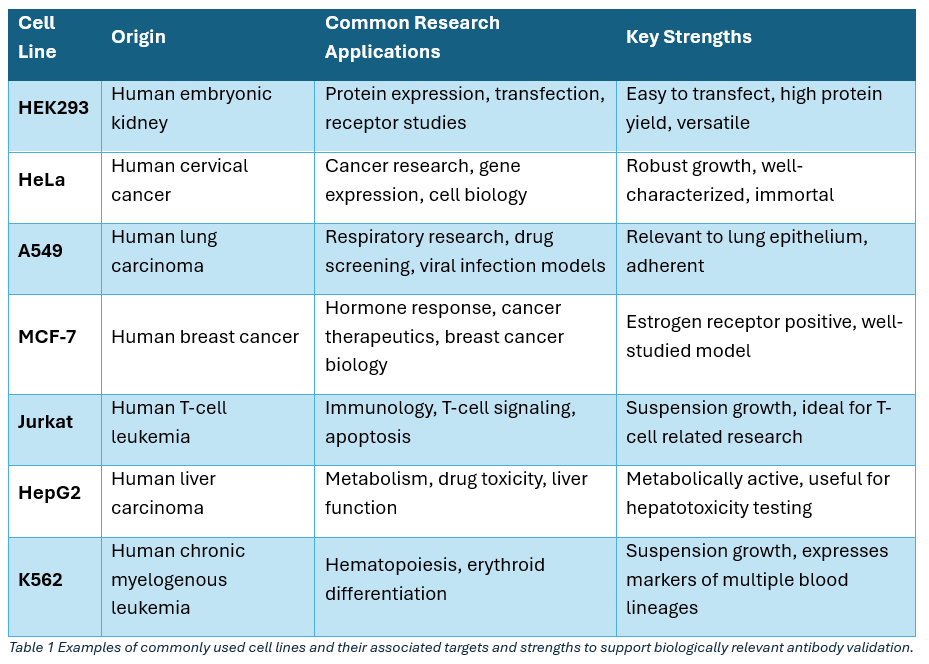
Cell Line Specific Antibody Validation
Why Antibody Validation in Relevant Tissues and Cell Lines Matters for Reliable Research
Antibodies are indispensable tools in life sciences research, powering applications like Western blotting, immunohistochemistry, flow cytometry and ELISA. However, the reproducibility crisis in biomedical research has underscored the need for rigorous antibody validation.
Cell line specificity refers to validating antibodies in cell lines that naturally express (or lack) the protein of interest. Ensuring that an antibody is specific, sensitive, and reproducible requires testing in these biologically relevant systems, ideally in tissues and cell lines that express the target protein at physiologically relevant levels to come as close as possible to results that customers can anticipate in their experiments.
What Does “Relevant” Mean in Antibody Validation?
Antibody validation should mimic real-world experimental conditions to confirm specificity and functionality. This means selecting cell lines and tissue samples where:
- The target protein is endogenously expressed at detectable levels.
- Negative controls (cell lines or tissues where the target is absent) are included when available to rule out cross-reactivity.
- Known experimental conditions (e.g., genetic knockouts or overexpression models) are used to verify performance.
Using irrelevant tissues or artificial overexpression systems can lead to misleading results. For example, an antibody may appear functional in an engineered system but fail in physiological conditions.
Here’s a table of widely used cell lines in scientific research and Aviva’s validations, with their origin and strengths:
 Aviva’s Commitment to Rigorous Antibody Validation
Aviva’s Commitment to Rigorous Antibody Validation
At Aviva Systems Biology, we prioritize antibody validation and characterization. We consult resources like The Human Protein Atlas, PaxDb, and UniProt to predict endogenous expression across cell lines & tissues and inform which samples to validate with, and our approach includes:
- Testing in selected cell types that are predicted to express the protein.
- Validating with knockout cell lines whenever possible to ensure antibodies only bind their intended target.
- Using multiple detection methods (Western blot, ICC, ELISA) for comprehensive validation.
- Measuring and reporting binding kinetics and affinities (on rates, off rates, and equilibrium dissociation constant).
Reliable Data Starts with Rigorous Validation
Choosing an antibody with demonstrated performance in relevant tissues and cell lines reduces experimental variability and increases confidence in research findings. As the field continues to push for greater reproducibility, robust validation practices will remain essential for advancing biomedical discoveries.
👉 Learn More About Aviva’s Methods of Enhanced Validated Antibodies

.png?width=1200&height=300&name=blog%20-%20cell%20line%20specificty%20(1200%20x%20300%20px).png)
